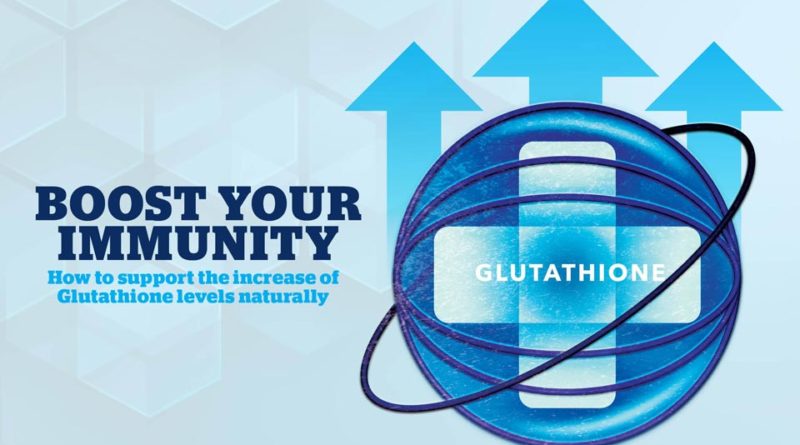How to Increase Glutathione Levels and Boost Immunity
When it comes to antioxidants, none are more powerful and potent than glutathione. This particular antioxidant seemingly made headlines for its benefits during the COVID-19 pandemic. While we will not make any direct claims in this article, what we will do is showcase how important glutathione is and how you can naturally increase your glutathione levels to support the immune system and overall health.
What is Glutathione?
Glutathione is an antioxidant that can be naturally made and produced by the body but can decrease with age. It’s role is to seek out and destroy free radicals in the body and to prevent oxidative stress from doing damage which can lead to sickness and disease.

What makes glutathione so important is that it plays a key function in helping to protect the immune system and seemingly provides the body with a layer of protection against foreign pathogens that can destroy or mutate healthy cells.
Related Article: The Many Health Benefits of Utilizing Echinacea Supplements
This crucial antioxidant is made up of three particular amino acids – glycine, glutamine, and cysteine.
How Can You Naturally Increase Glutathione Levels?
There are many ways that glutathione levels can be enhanced. Likewise, there are many things (such as consuming alcohol) that can decrease glutathione levels. What we put in our body and how we treat our body plays a critical role in how much glutathione our body is able to produce and maintain at a given time.
Below, you will find five key strategies for increasing your body’s natural production of glutathione. You may use one or multiple of the strategies listed to get the best results possible.
1. Eat Foods High in Glutathione
Yes, there are various food items you can purchase and eat that are naturally high in glutathione. Some of these foods include asparagus, avocado, and spinach. That being said, the body has a difficult time fully absorbing dietary glutathione found in the food you consume. Therefore, you’ll want to include other strategies found in this article along with this to get the best protection and boost immunity.
That doesn’t mean you should dismiss dietary glutathione, though. Try to include the glutathione-rich foods mentioned above in your daily/weekly meals to help further provide your body with added protection against oxidative stress and harmful pathogens.
2. Consume More Protein and Healthy Vegetables
Why protein? Well, for many reasons. Consuming various foods that are high in protein are also generally rich in selenium and sulfur, which can help increase glutathione levels.
While protein may be the main focus for many people who aren’t a fan of vegetables, natural sources of sulfur are also found in green leafy, cruciferous vegetables. Therefore, on top of consuming more beef, fish, and chicken, you should also be reaching for kale, broccoli, and brussels sprouts.
When it comes to selenium, you can again reach for things, such as beef, fish, and chicken, but also nuts, cottage cheese, and brown rice.
If you’re into health and fitness, all of this should be nothing new to you as your diet should already be filled with high-quality lean protein sources as well as healthy vegetables (including your greens).
Click here to continue reading…


*Disclosure: This article may contain affiliate links or ads, which means we earn a small commission at no extra cost to you if you make a purchase through these links. These commissions help support the operation and maintenance of our website, allowing us to continue producing free valuable content. Your support is genuinely appreciated, whether you choose to use our links or not. Thank you for being a part of our community and enjoying our content.
PLEASE CONSIDER SHARING THIS ON YOUR SOCIAL MEDIA TO HELP OTHERS LEARN MORE ABOUT THIS TOPIC.





